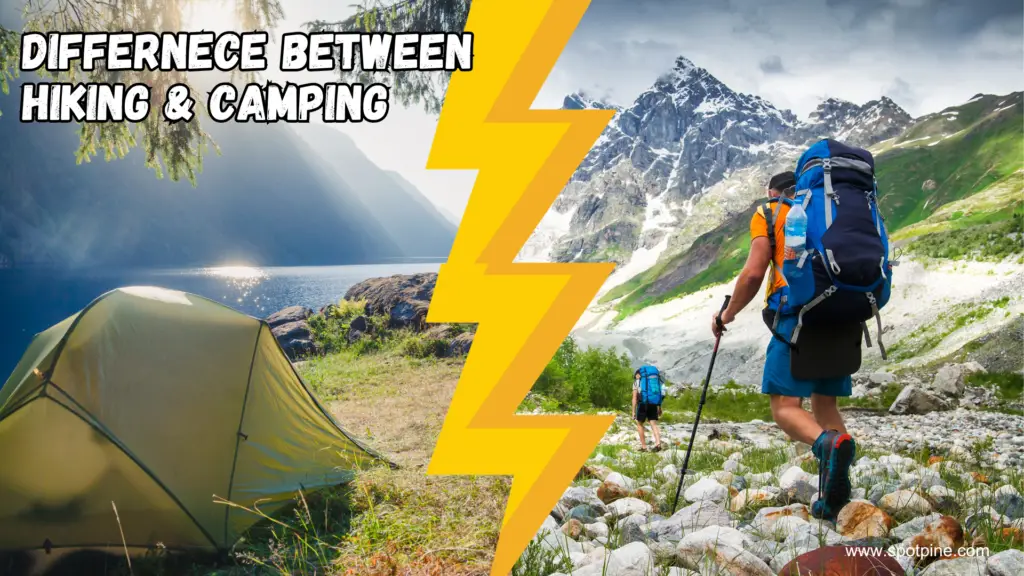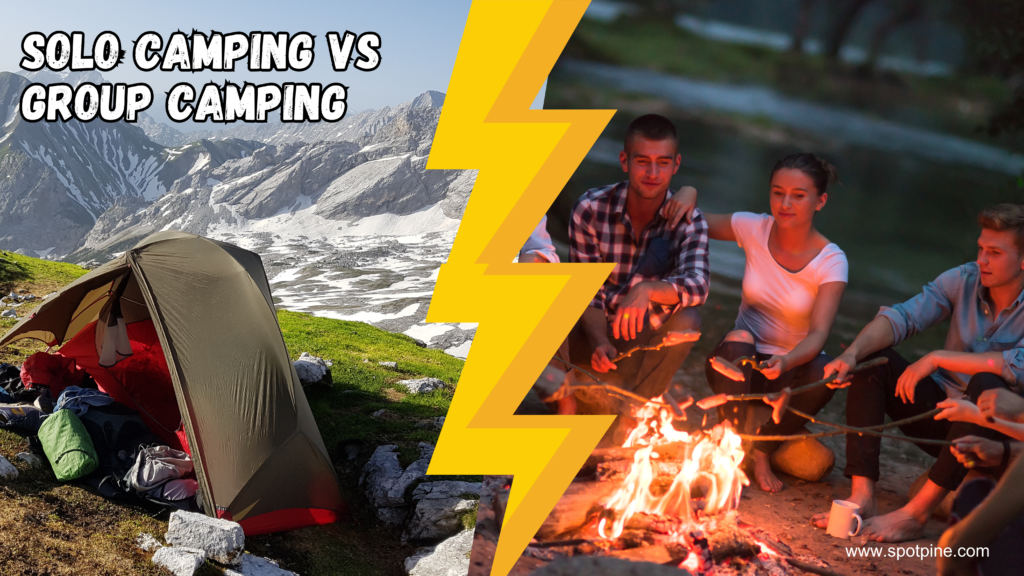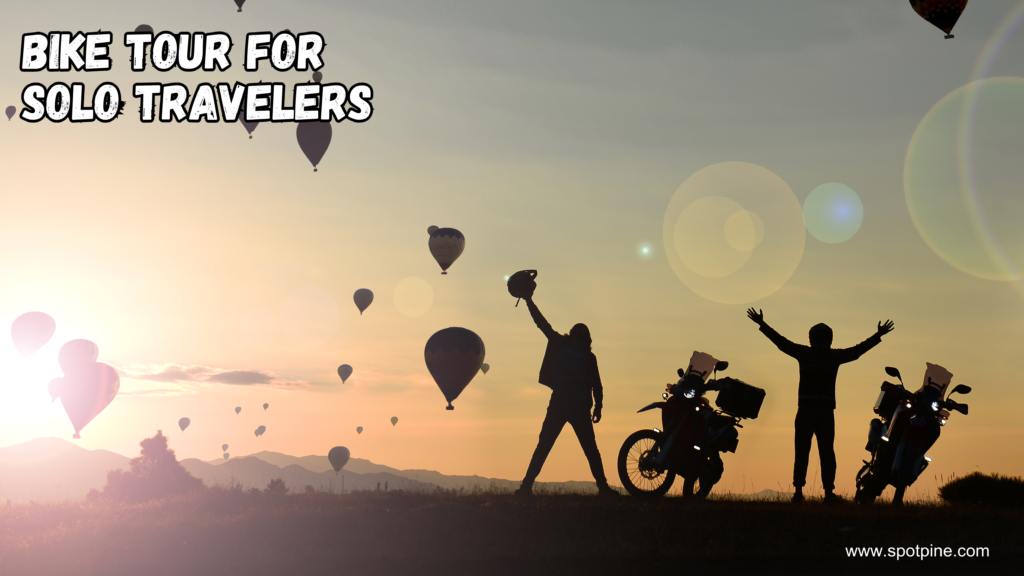Hiking is a physical activity of walking in nature, while camping refers to staying overnight in outdoor areas with shelter. Hiking involves walking in natural areas, such as trails or mountains, for recreation or exercise purposes.
On the other hand, camping involves setting up temporary shelters, such as tents or RVs, to stay overnight in outdoor locations. While hiking primarily emphasizes the physical activity of walking and exploring, camping focuses on spending extended periods of time in nature, often involving activities like cooking meals, sleeping outdoors, and enjoying the surroundings.
Both hiking and camping offer opportunities to connect with nature, but they differ in terms of their main activities and duration of stay.
Exploring The Great Outdoors
Curious about both hiking and camping? Hiking offers a captivating adventure through diverse terrains, while camping provides a chance to immerse in nature in a more relaxed setting. Hiking involves trekking through trails, whereas camping involves setting up a temporary home in the outdoors.
Hiking Vs. Camping: An Introduction
Exploring the great outdoors is a fantastic way to experience nature and disconnect from the hustle and bustle of daily life. Two popular activities that allow you to do just that are hiking and camping. While both involve spending time in nature, these activities offer different experiences and ways to connect with the environment.
Engaging in outdoor adventures such as hiking and camping can have numerous benefits for both the mind and body. Let’s take a look at some of these benefits:
Hiking
When it comes to hiking, the primary focus is on exploring various trails and natural landscapes. It involves walking on designated paths, often through mountains, forests, or along scenic routes. Hiking provides an excellent opportunity to exercise while taking in breathtaking views and immersing yourself in nature’s beauty. This outdoor activity not only helps to improve physical fitness, but it can also boost mental well-being by reducing stress, improving mood, and increasing focus. Whether you’re a seasoned hiker or a beginner, there’s a trail waiting to be explored.
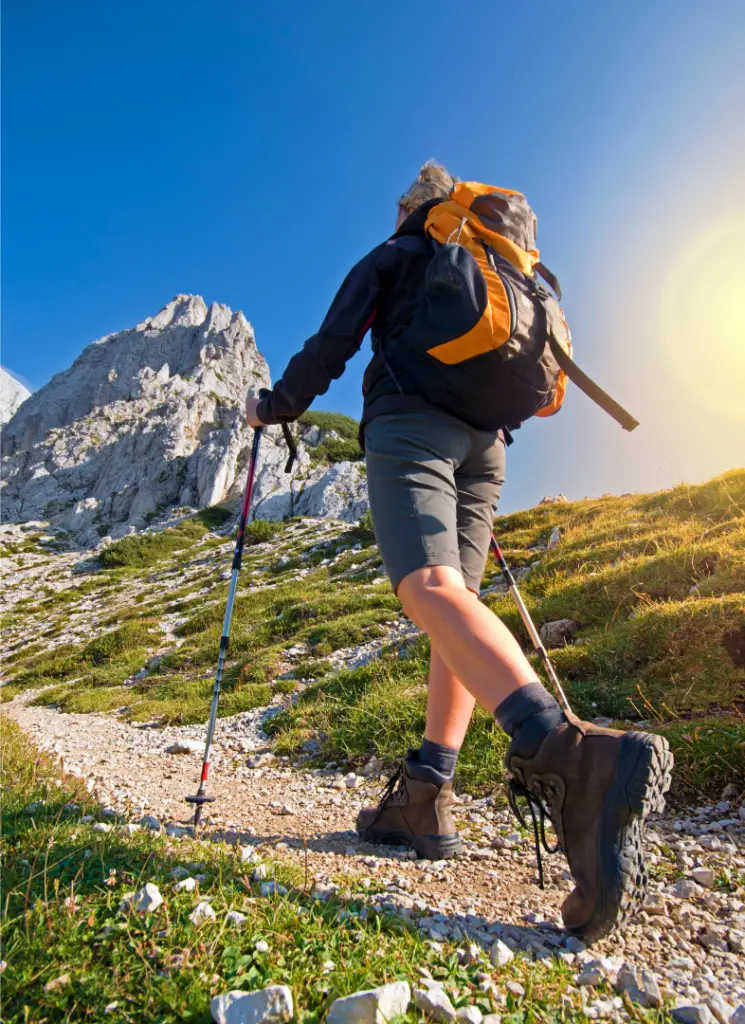
Camping
On the other hand, camping allows you to experience the great outdoors in a different way. When you go camping, you get to immerse yourself in nature for an extended period of time. It involves setting up a temporary shelter, whether it be a tent, RV, or any other form of accommodation, in a designated campsite. Camping offers a unique opportunity to disconnect from technology and fully embrace a simpler, more primitive way of living. It allows you to build a deeper connection with the natural surroundings, listen to the peaceful sounds of the wilderness, and take a break from the distractions of modern life.
In conclusion, whether you choose to go hiking or camping, both activities provide an incredible chance to get close to nature, de-stress, and rejuvenate the body and mind. So, lace up your hiking boots or pack up your camping gear, and embark on an adventure that will leave you with unforgettable memories.
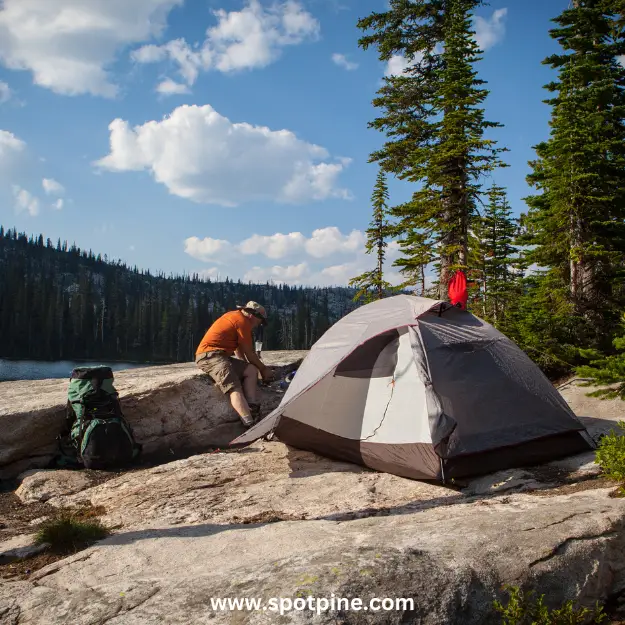
Hiking: Roaming The Trails
Definition And Characteristics
Hiking entails trekking through natural landscapes such as mountains, forests, and scenic trails. The activity involves walking for extended periods, typically on established paths or trails.
Health And Fitness Benefits
Hiking offers numerous health benefits, including improved cardiovascular fitness, muscle strength, and endurance. It also aids in weight management and stress reduction.
Camping: Embracing The Wilderness
Definition And Styles Of Camping
Camping involves staying outdoors in a tent, RV, or primitive shelter.
- Campers can choose from various styles such as glamping, backpacking, or car camping.
- Each style offers a unique camping experience based on preferences and comfort levels.
Connection With Nature
Camping allows individuals to immerse themselves in the natural environment.
- Bonding with the wilderness enhances mental well-being and reduces stress levels.
- Engaging with nature fosters a sense of appreciation for the environment.
Packing Essentials
When preparing for an outdoor adventure, knowing the differences between hiking and camping is crucial. Each activity requires specific gear and essentials. Let’s explore the packing essentials for both hiking and camping:
Hiking Gear Checklist
- Comfortable hiking boots or shoes
- Breathable and moisture-wicking clothing
- Backpack with proper support
- Water bottle or hydration pack
- Sunscreen and sunglasses
- Snacks and energy bars
- Navigation tools like a map or GPS
- First aid kit
- Multi-tool or knife
- Emergency whistle
Read More: What Hiking Gear Do You Need?
Camping Gear Checklist
- Tent, tarp, or hammock
- Sleeping bag and sleeping pad
- Camp stove and fuel
- Cooking utensils and tableware
- Headlamp or flashlight
- Firestarter and matches
- Biodegradable soap and trash bags
- Insect repellent
- Camping chairs or stools
- Entertainment like a book or deck of cards
Read More: What Camping Gear Do You Need? Essential Guide
With the right gear and essentials, your hiking and camping experiences will be memorable and enjoyable. Make sure to pack wisely and prepare for the unexpected in the great outdoors.
Skill Requirements
When it comes to outdoor adventures, both hiking and camping offer unique experiences. But what sets them apart are the skill requirements. Both activities demand a certain level of physical endurance, stamina, survival skills, and navigation abilities. In this section, we will explore the specific skill requirements for both hiking and camping.
Physical Endurance And Stamina
Hiking and camping are physically demanding activities that require a reasonable level of physical endurance and stamina. Hikers need to be prepared to walk for extended periods and tackle challenging terrains. On the other hand, campers often participate in activities like setting up tents, gathering firewood, and carrying heavy backpacks. Therefore, both activities demand individuals to have a certain level of physical fitness and endurance.
Survival Skills And Navigation
Survival skills and navigation play crucial roles in both hiking and camping. Hikers, especially those venturing into remote locations, must possess basic survival skills such as starting a fire, finding clean water sources, and navigating through unfamiliar territories. Similarly, campers need to have knowledge about setting up a campsite, cooking food outdoors, and using camping equipment effectively.
Furthermore, navigation skills are essential for both activities. Hikers should be able to read maps, use a compass, understand trail markers, and calculate distances accurately. Campers, on the other hand, should be capable of navigating within a campsite, locating facilities like toilets and water sources, and finding their way back to their camping site in case they wander off.
In conclusion,
- Hiking and camping require physical endurance, stamina, survival skills, and navigation abilities.
- Hikers need to be prepared for longer walks and challenging terrains.
- Survival skills such as fire-making and finding clean water are essential for hikers.
- Campers should know how to set up a campsite and use camping equipment.
- Both activities require navigation skills using maps, compasses, and trail markers.
By understanding the skill requirements, you can better prepare yourself for either hiking or camping, ensuring a safe and enjoyable outdoor adventure.
Environmental Impact
When it comes to exploring the great outdoors, both hiking and camping can provide a sense of adventure and a close connection with nature. However, it’s important to acknowledge the environmental impact that these outdoor activities can have. From the Leave No Trace principles to conservation efforts, there are steps that hikers and campers can take to minimize their impact on the environment.
Leave No Trace Principles:
The Leave No Trace principles are a set of guidelines that promote responsible outdoor recreation. They emphasize the importance of leaving nature undisturbed and minimizing human impact. These principles can be applied to both hiking and camping:
Plan Ahead and Prepare
Be knowledgeable about the area you plan to explore and ensure you have all the necessary equipment and supplies. This will help minimize any potential damage to the environment.
Dispose of Waste Properly:
Carry a trash bag and pack out all of your trash, including food waste. Dispose of it properly in designated areas or waste bins. Leaving your waste behind can harm wildlife and negatively affect the ecosystem.
Leave What You Find:
Avoid disturbing or removing natural objects such as plants, rocks, or artifacts. These objects play a vital role in the ecosystem and their removal can disrupt the natural balance.
Minimize Campfire Impacts:
If campfires are permitted, use existing fire rings or designated fire pits. Keep the fire small and make sure it is completely extinguished before leaving the area. Use only dead and downed wood to prevent damage to live trees.
Respect Wildlife:
Observe wildlife from a distance and do not feed or approach them. Feeding wildlife can disrupt their natural behavior and dependency on human food can be harmful to their health.
Respect the rights of other hikers and campers. Keep noise levels low, stay on designated trails, and avoid overcrowding in camping areas. This will help maintain a peaceful and enjoyable experience for all.
Conservation Efforts:
In addition to following the Leave No Trace principles, hikers and campers can contribute to conservation efforts to protect the natural environment:
- Participate in Clean-up Events:
Join or organize clean-up events in outdoor areas to help remove trash and debris left behind by others. This proactive approach ensures that the environment remains pristine and enjoyable for future visitors.
- Support Local Conservation Organizations:
Contribute to local conservation organizations that work towards preserving and restoring natural habitats. These organizations often rely on financial support and volunteer efforts to carry out their important work.
- Practice Sustainable Outdoor Ethics:
Consider the environmental impact of your gear and equipment choices. Opt for reusable and eco-friendly alternatives whenever possible. Avoid using single-use items that can contribute to waste and pollution.
- Stay Informed:
Keep yourself updated on current environmental issues and practices. Stay informed about any regulations or restrictions in the areas you plan to visit and follow them accordingly.
- Spread Awareness:
Share your knowledge and experiences about responsible outdoor practices with others. By spreading awareness, you can inspire more people to become environmentally conscious hikers and campers.
Choosing Your Adventure
Factors To Consider
When deciding whether to go hiking or camping, there are several factors to consider. Personal preferences play a significant role in choosing between the two activities. Let’s delve into the key factors that can guide you towards your ideal outdoor adventure.
Personal Preferences
Besides external factors, your personal preferences heavily influence the choice between hiking and camping. Consider your comfort level, desired level of physical activity, and interest in nature immersion when making this decision. By aligning your personal preferences with the unique aspects of each activity, you can ensure an enjoyable experience.
FAQs On Difference Between Hiking And Camping
What Is The Main Difference Between Hiking And Camping?
Hiking involves trekking through natural landscapes, focusing on physical activity and exploration. Camping, on the other hand, involves setting up a temporary residence in the outdoors, usually involving staying overnight in a tent or shelter.
Can Camping And Hiking Activities Be Combined Into One Adventure?
Absolutely, many outdoor enthusiasts enjoy a combination of camping and hiking. They start by hiking to a chosen camping spot, where they can set up their tents, enjoy the natural surroundings, and then continue to explore the area on foot.
Is It Necessary To Hike In Order To Go Camping?
While hiking and camping often go hand in hand, it’s not mandatory to hike in order to enjoy camping. Camping can be a stationary activity, with the focus on relaxing and enjoying the outdoor atmosphere without the need for extensive hiking.
Conclusion
As we wrap up, it’s clear that hiking and camping offer unique experiences in the great outdoors. While hiking allows you to explore and challenge yourself on different trails, camping allows you to immerse yourself in nature and enjoy a peaceful getaway.
Both activities provide opportunities for adventure and relaxation, making them great choices for outdoor enthusiasts. So, whether you prefer the adrenaline rush of hiking or the tranquility of camping, get out there and embrace the wonders of nature!

